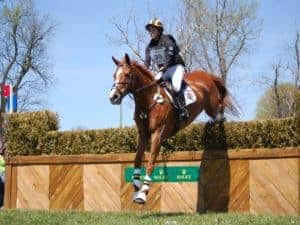Grazing Horses in Moderately Polluted Areas
Horses might serve as good management tools for pastures moderately polluted by trace elements, according to Spanish researchers. And provided the animals receive adequate, systematic monitoring through biological sampling, they can be kept on this land without adverse health consequences.
Scientists conducted a study in the Agrio and Guadiamar River valleys in southwestern Spain, where a dam burst in 1998 and flooded the plains with potentially toxic metals. This area was cleaned up and reforested after the accident to create a nature reserve called "The Guadiamar Green Corridor." They evaluated grazing horses in this area to investigate the concentration and passage of the elements through their bodies. Mane, hair, and fecal samples indicated that while the horses may have received certain doses of the elements, the levels were not harmful, and all nonessential elements were preferentially excreted in their feces. Regular analyses of the soil and plants revealed that the toxicity of the pastures was within tolerable limits for the horses.
"Mechanical control of grasses following a pollution accident is expensive, generates greenhouse gas emissions, and may affect the biodiversity of the region," said Paula Madej�n, PhD, researcher at the Institute of Natural Resources and Agrobiology of Sevilla (IRNAS-CSIC) and primary author of the study. "But grazing by horses is a benign and sustainable management tool for control of the grass cover, as long as the horses continue to remain healthy." However, no horses grazing on any kind of polluted area should be sold for consumption, she added.
Although this study focuses on a specific spill area, the results are essentially applicable to any pasture prone to be contaminated, such as those near landfills, mines, and even some industrial factories, Madej�n said. Soil and plant analyses should be carried out by specialized laboratories before grazing is allowed, and ongoing sampling of both the land and the horses (hair, blood, urine, feces, etc.) should be performed as long as the horses are grazing on the site
Create a free account with TheHorse.com to view this content.
TheHorse.com is home to thousands of free articles about horse health care. In order to access some of our exclusive free content, you must be signed into TheHorse.com.
Start your free account today!
Already have an account?
and continue reading.

Related Articles
Stay on top of the most recent Horse Health news with

















